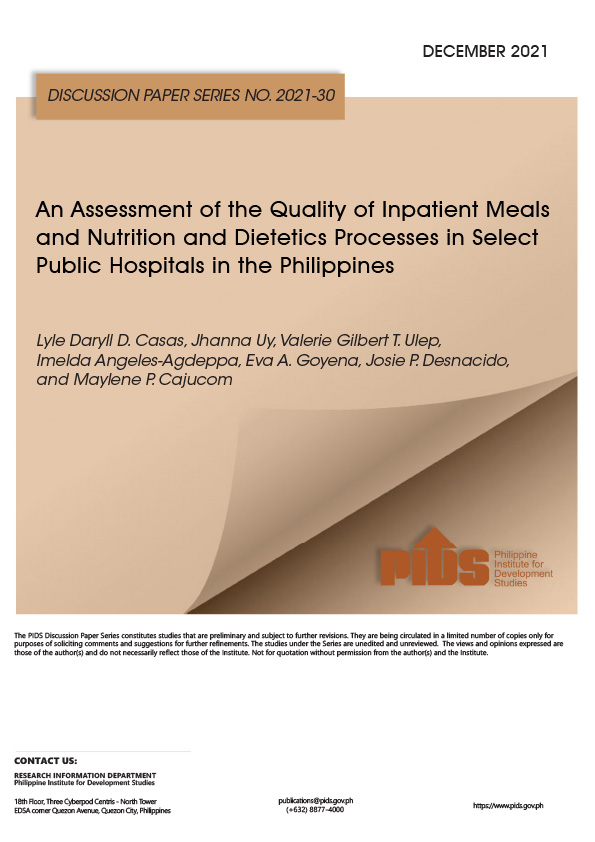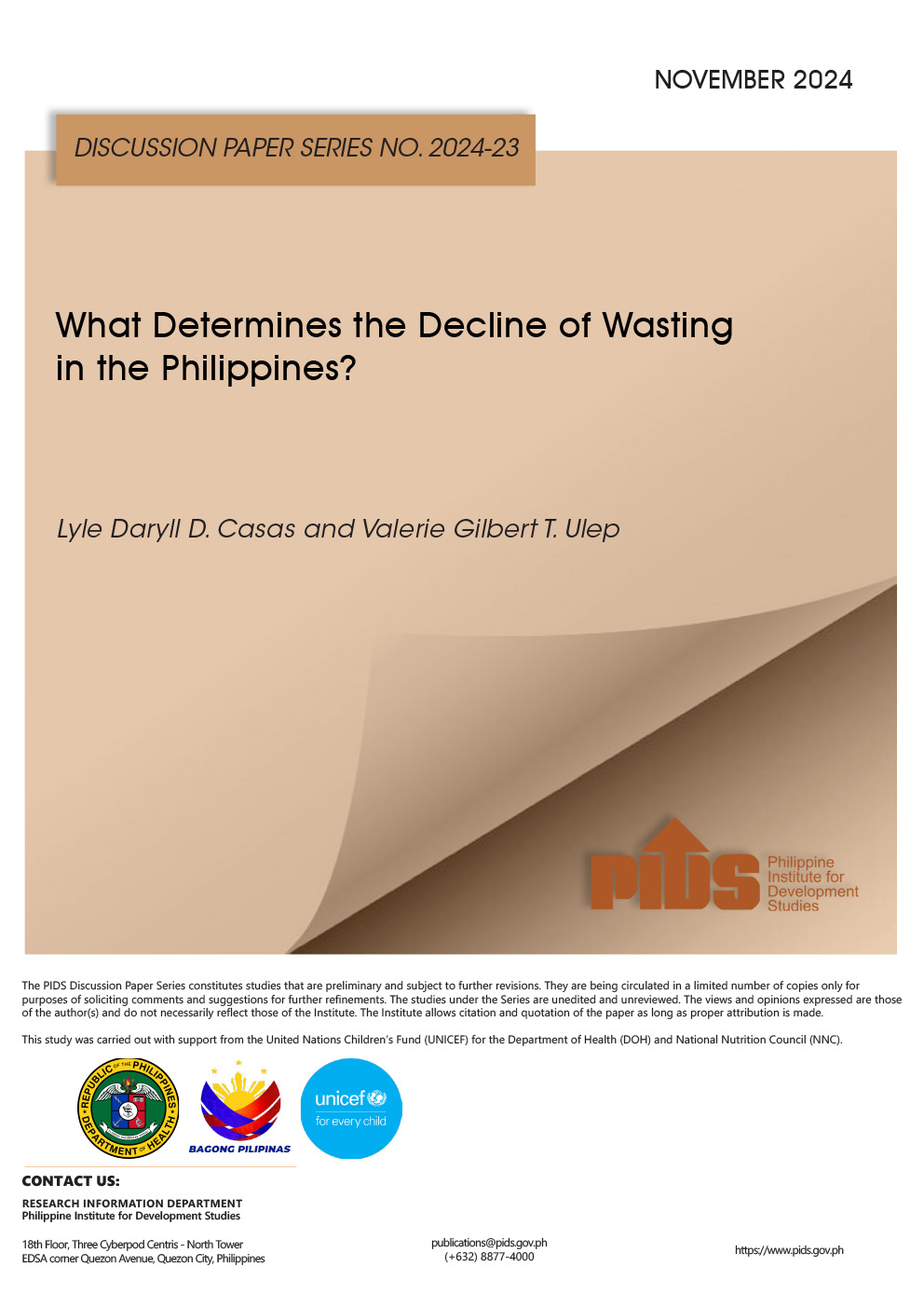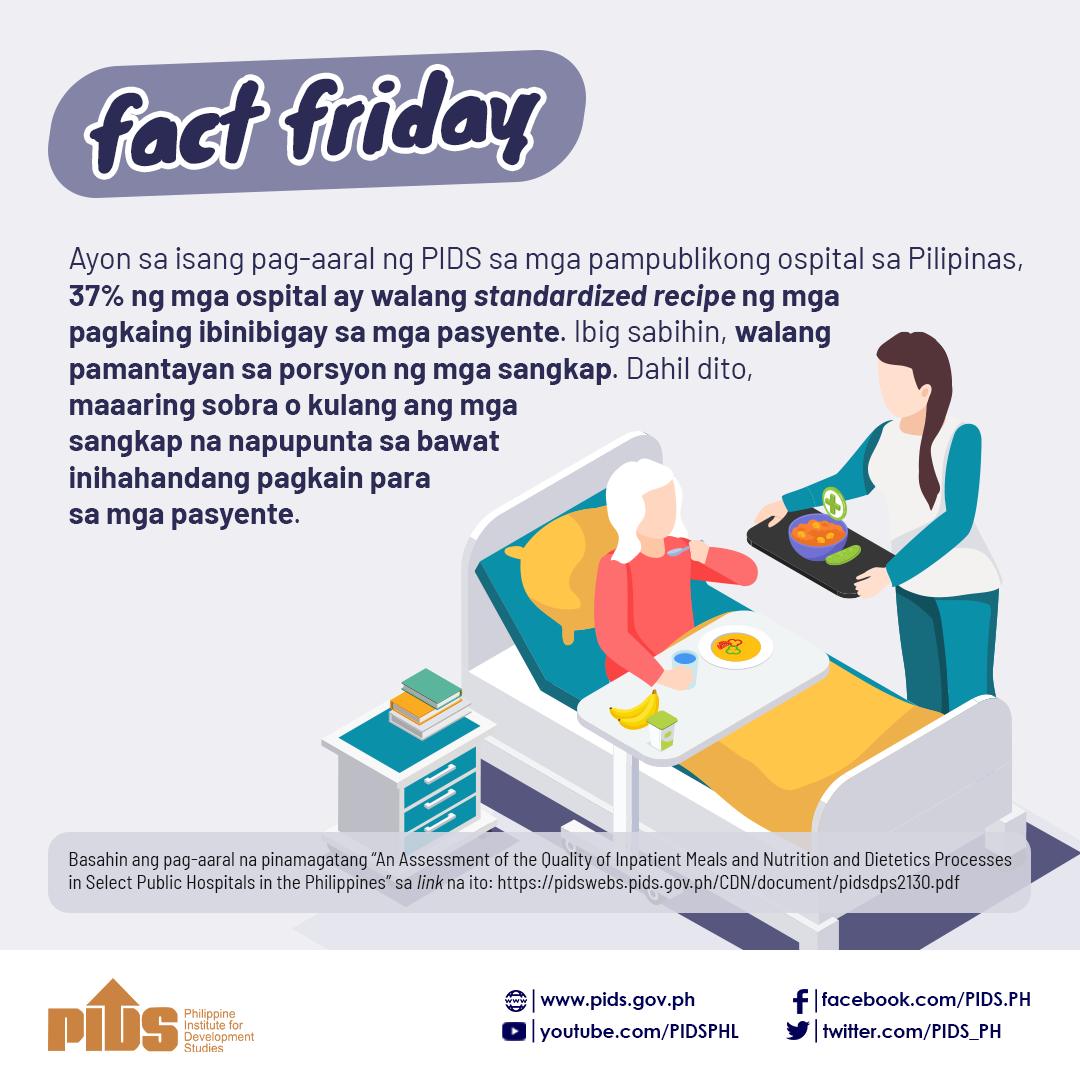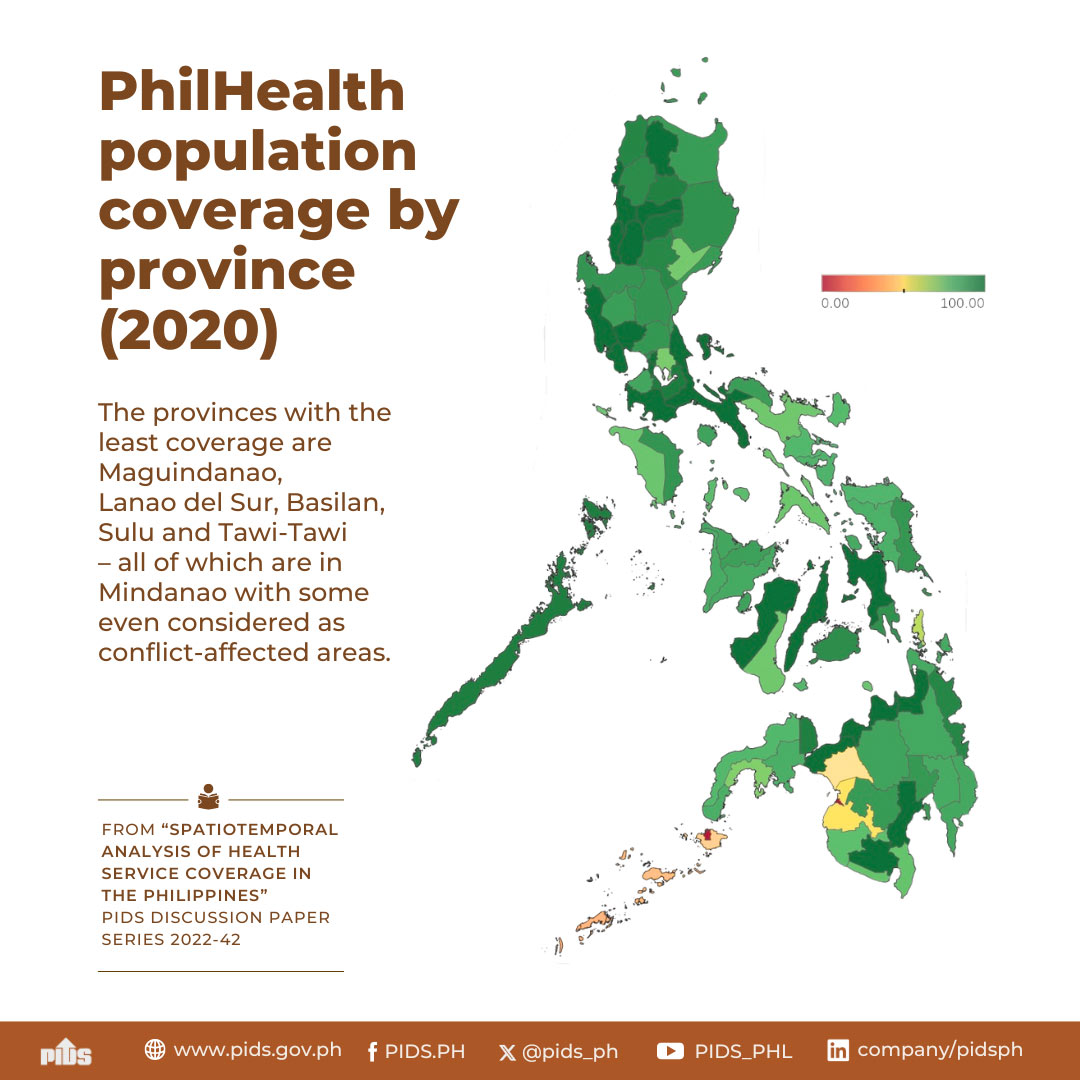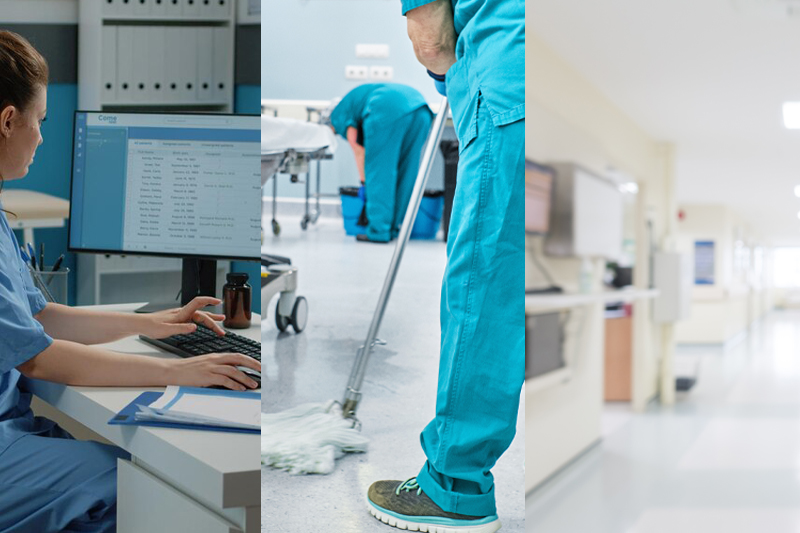
The provision of quality nutrition care by Philippine public hospitals may be improved with interoperable systems, capacity training, and investments in health facilities.
This was the key message of Philippine Children’s Medical Center Chief Nutritionist-Dietitian Aldie Fajardo during a webinar organized by the Philippine Institute for Development Studies (PIDS) that featured studies on the country’s quality of health care and nutrition in Philippine hospitals.
Fajardo, who served as a discussant, said there is a need to strengthen the synergy among all levels and types of hospitals in the country. This way, hospitals and other health institutions can adopt best practices together. This would also help promote the use of interoperable systems in managing patient data.
“[This would result in] the smooth transition of patient data to other health institutions to track previous medical history and medication,” Fajardo explained, noting that this move is an efficient and effective way to manage patients.
He also called for more “customer-centric” training for all hospital staff to improve hospitals' performance.
“If we want to deliver high-quality service to our patients, we must not forget the administrative staff or the client-facing personnel such as cashiers, admitting staff, guards, and even housekeeping personnel. They can make a big difference in the application of a holistic approach to treating our patients,” Fajardo explained.
Meanwhile, Department of Health’s Dietary Adviser for its Health Facility Development Bureau Josephine Guiao said that while DOH provides capacity trainings, the COVID-19 pandemic has affected their conduct.
For instance, Guiao shared that the Nutrition Care Process has not been fully implemented in public hospitals due to lack of trainings. The NCP, which registered nutritionist-dietitians are tasked to implement, provides a systematic and customized approach to providing high-quality nutrition care among patients.
Nevertheless, she said NCP trainings for public and private hospitals have already been lined up for this year. These are meant to train medical personnel in treating critically ill and nutritionally-at-risk patients.
In terms of hospital facilities, she emphasized the “need to improve and invest in basic equipment for conducting nutritional assessments”. This includes tools such as weighing scale and stadiometer.
Similarly, Fajardo urged the government to continue investing in better nutrition to help hospitals serve “safe and nutritious” meals to patients. ###
You may watch the webinar at https://fb.watch/dPYjj3qz-P/
or https://youtu.be/2blDS-_FFqE.
For more videos of PIDS events, go to https://www.pids.gov.ph/videos.

